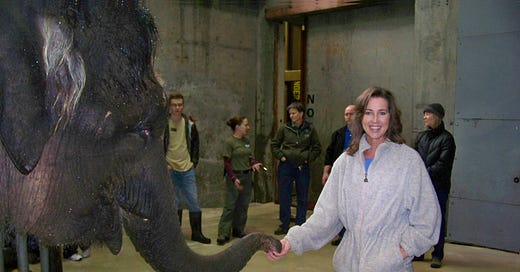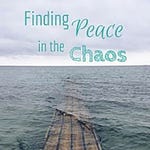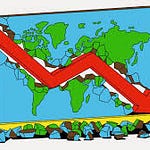Just a few days left to take advantage of the Dog Days of Summer 30% discount!
Many of you have done so and I thank you! I am hoping another dozen will upgrade to paid in the next few days.
I’ve been bumping into the concept of human flourishing quite a bit lately and decided to dig into it. Turns out this is a topic that can lead down a number of rabbit holes. Academic studies, psychology and health research institutions, and some think-tank organizations describe human flourishing basically as an ability to meet material needs, have healthy relationships, and find some sense of purpose or meaning. I certainly agree each of those pieces is important to overall quality of life.
However, what I find glaring, though not surprising, is that all of the research I’ve encountered is completely anthropocentric, grounded in the cultural assumption that human wellbeing is able to be separated from the wellbeing of the planet we live on and the fellow species it supports.
Somewhere along the way, Western culture adopted the mindset that humans are apart from and above, rather than a part of and inextricably connected with, nature. We’ve come to view oceans, forests, and other species as “natural resources” to be extracted and used rather than a glorious mosaic of life unfolding. Unparalleled ingenuity allowed our technology to outpace our wisdom in how and when to use our inventions. Human industries and activities are now at such scale that scientists have dubbed the current geological age the Anthropocene, noting that collective humanity, rather than glaciers, volcanoes and continental drift, have become the dominant influence on Earth’s ecological systems.
One vein of thinking amongst conservatives takes this separation consciousness even further, viewing environmentalism as being “anti-human”. I’ve shared before that I have a family member cut from that cloth and he seems unable to understand my suggestion that the question “environment or human” is a false choice. Or, as Mona Lisa Vito (played by Marisa Tomei) in My Cousin Vinny would say, “It’s a bullshit question.” You cannot have flourishing humans on a devastated planet. My desire for healthier ecosystems, and more robust populations of non-human species isn’t anti-human but rather pro all life, including humans.
Some, such as Elon Musk and his acolytes (including my family member) add another wrinkle called Transhuman. This involves such concepts as merging humans with machines so as to make our physical bodies unnecessary and colonizing other planets so that if Earth crashes humanity can go on. Personally, given the rate at which we’re grinding up this planet I think we’d be much wiser to get busy healing it before investing time and money trying to colonize some distant world.
Back to human flourishing. I believe most humans, even if they aren’t overtly aware of it, still feel a deep connection to nature and non-human species. For many of us forests, rivers, ocean beaches are places of solace, peace and inspiration. We flourish in those settings. And our lives are enhanced by the amazing diversity of beings on this planet. I don’t need to personally witness elephants in the wild (though I sure hope to one day) to have my life enriched by knowing they exist. Moreover, chronic grief does not contribute to human flourishing and recent studies show that eco-grief and anxiety is now widespread across all age groups. As we diminish the natural world we diminish the likelihood of widespread human flourishing.
Listen to this episode with a 7-day free trial
Subscribe to TRANSCEND with Cylvia Hayes to listen to this post and get 7 days of free access to the full post archives.













